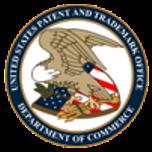Washington DC: President Obama on October 5, 2012, signed legislation (H.R. 6215) that restores the limitation of the federal registration defense to trademark dilution claims based on state law only.
Background
In 1995, Congress enacted the Federal Trademark Dilution Act with a federal registration defense intended to encourage federal trademark registation. Section 43(c)(6) of the Lanham Act, 15 U.S.C. 1125(c)(6) included a complete bar for state dilution claims brought against federally registered marks. In 2006, the Trademark Dilution Revision Act addressed a number of problems with the legislation, including an amendments to make the federal registration defense specify not simply “dilution,” but “dilution by blurring” and “dilution by tarnishment.”
The House version of the 2006 amendment stated that a federal registration bars an action that is brought under state law and that seeks to prevent dilution, or that asserts harm to distinctiveness. When the bill was in the Senate, the language was unchanged, but the elements were enumerated in a way that changed the meaning. Thus, the enacted bill stated that a federal registration bars an action (A)(i) that is brought under state law and (ii) that seeks to prevent dilution, or (B) that asserts harm to distinctiveness. The result was that a federal registration could bar both state and federal dilution actions.
Signed Legislation
H.R. 6215 restores the intent of the House-passed version of 15 U.S.C. 1125(c)(6) as follows:
(c)(6) The ownership by a person of a valid registration … shall be a complete bar to an action against that person, with respect to that mark, that —
(A) is brought by another person under the common law or a statute of a State; and
(B) (i) seeks to prevent dilution by blurring or dilution by tarnishment; or
(ii) asserts any claim of actual or likely damage or harm to the distinctiveness or
reputation of a mark, label, or form of advertisement.’.
The House Report (H. Rept. 112-647) for H.R. 6215 points out that Congress could not have intended that federal registration could serve to bar all dilution claims since that result would make it difficult to cancel a diluting mark that is registered. That would only encourage illegitimate mark holders to register diluting marks, and would force legitimate mark holders to expend greater resources monitoring registrations as well as other marks being used in commerce, the Report noted.
Practice Tip:
The need for this legislation was recently confirmed by a ruling of the Trademark Trial and Appeal Board in the cancellation action in Academy of Motion Picture Arts and Sciences v. Alliance of Professionals and Consultants, Inc., TTAB, Canc. No. 95055081, 9/24/2012. The TTAB dismissed the action, finding that the language of the 2006 amendment barred a federal dilution claim against a federally registered mark. The TTAB explained as follows:
While a “most extraordinary showing of contrary intentions” by Congress may justify a departure from the plain language of a statute, Garcia v. United States, 469 U.S. 70, 75 (1984), there is scant legislative history, and certainly not enough to support an alternative reading in this case. The Board must apply and enforce the statute as written, rather than picking and choosing a preferred interpretation. “Congress’ intent is found in the words it has chosen to use.” Harbison v. Bell, 556 U.S. 180, 198 (2009) (Thomas, J., concurring).
Continue reading
![]() suit against Parker Compound Bows, Inc. of Virginia. The suit alleges infringement of the mark TOMAHAWK BOWS, Registration No. 3, 156,258 issued by the US Trademark Office. The plaintiff claims that Parker has been distributing crossbows using the name TOMAHAWK, which infringes their products and could be confusing to the public.”
suit against Parker Compound Bows, Inc. of Virginia. The suit alleges infringement of the mark TOMAHAWK BOWS, Registration No. 3, 156,258 issued by the US Trademark Office. The plaintiff claims that Parker has been distributing crossbows using the name TOMAHAWK, which infringes their products and could be confusing to the public.”




